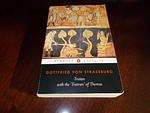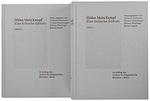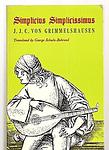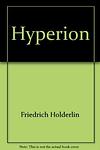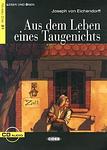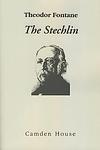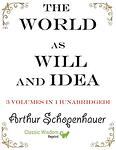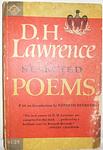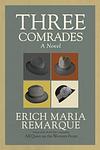The Greatest German "Germany" Books of All Time
Click to learn how this list is calculated.
This list represents a comprehensive and trusted collection of the greatest books. Developed through a specialized algorithm, it brings together 305 'best of' book lists to form a definitive guide to the world's most acclaimed books. For those interested in how these books are chosen, additional details can be found on the rankings page.
Genres
The category of "Germany" in terms of books would encompass literature that is set in or about Germany, its history, culture, people, and society. This could include works of fiction, non-fiction, memoirs, biographies, and historical accounts that explore various aspects of German life, such as the country's politics, economy, art, music, literature, and more. The category would be of interest to readers who are fascinated by Germany's rich and complex history, its contributions to world culture, and its ongoing role in shaping global affairs.
Countries
Date Range
Reading Statistics
Click the button below to see how many of these books you've read!
Download
If you're interested in downloading this list as a CSV file for use in a spreadsheet application, you can easily do so by clicking the button below. Please note that to ensure a manageable file size and faster download, the CSV will include details for only the first 500 books.
Download-
26. Being and Time by Martin Heidegger
Being and Time is a seminal work that explores the concept of "being" through a detailed analysis of human existence. The book delves into existential and phenomenological thought, examining how humans relate to the world and their own existence. The author argues that people are always "being-in-the-world" and that understanding this fundamental state is crucial to comprehending the broader concept of being. The work also introduces the concept of "Dasein," a term used to describe the specific type of being that humans possess.
The 888th Greatest Book of All Time -
27. Wilhelm Meister's Apprenticeship by Johann Wolfgang von Goethe
"Wilhelm Meister's Apprenticeship" is a classic coming-of-age story that follows the protagonist, Wilhelm, through his journey of self-discovery. Caught between his bourgeois background and his aspirations to become an actor, Wilhelm embarks on an odyssey that introduces him to a variety of characters and experiences. The novel explores themes of love, loss, and the pursuit of artistic excellence, while also critiquing the social norms and expectations of the time.
The 894th Greatest Book of All Time -
28. Tristan by Gottfried von Strassburg
"Tristan" is a medieval romance that tells the tragic tale of the noble knight Tristan and the beautiful princess Isolde. The story is filled with themes of love, betrayal, and honor, as Tristan is sent to Ireland to bring back Isolde for his uncle, King Mark, to marry. However, on their journey back, they accidentally consume a love potion, causing them to fall deeply in love with each other. Their illicit affair eventually leads to their downfall, resulting in a tale filled with sorrow and heartbreak.
The 945th Greatest Book of All Time -
29. Economy and Society by Max Weber
"Economy and Society" is a comprehensive analysis of the relationship between economy and society, focusing on the role of social actions and their impact on economic systems. The book presents a theoretical framework for understanding how economic and social structures influence each other, including the role of bureaucracy, power, and authority. The author also introduces his famous concept of the "Protestant Ethic", linking the rise of capitalism to certain aspects of Christian beliefs. The book is considered a fundamental text in sociology and economics, providing a deep understanding of social and economic phenomena.
The 961st Greatest Book of All Time -
30. Eichmann in Jerusalem: A Report on the Banality of Evil by Hannah Arendt
This book is a thought-provoking exploration of the trial of Adolf Eichmann, a major organizer of the Holocaust. The author argues that Eichmann was not a fanatical ideologue, but rather an ordinary individual who simply followed orders and bureaucratic procedures, highlighting the terrifying potential for evil in any system that values obedience over personal responsibility. The concept of the "banality of evil" is introduced, suggesting that horrific acts can be committed by ordinary people under certain conditions.
The 977th Greatest Book of All Time -
31. Mein Kampf by Adolf Hitler
This book is a two-volume work written by a prominent dictator during his imprisonment in 1924. It outlines his political ideology and future plans for Germany, combining elements of autobiography with an exposition of his views on race, nationality, and governance. The author's main thesis is that the German-speaking 'Aryan' race is superior to all others, and that it is the duty of the state to preserve the purity of this race through policies of racial segregation, expansionism, and extermination. The book also contains detailed discussions on the author's hatred towards Jews, Marxism, and the parliamentary system.
The 1046th Greatest Book of All Time -
32. Beyond Good and Evil by Friedrich Nietzsche
"Beyond Good and Evil" is a philosophical work that challenges the moral conventions of the time, arguing that concepts of good and evil are not absolute but are instead social constructs. The book delves into the nature of individual morality, asserting that it is driven by self-interest and the will to power. It also criticizes past philosophers for their unquestioning acceptance of religious and societal norms, and promotes the idea of the "overman" or "superman", a superior human who embraces his instincts and creates his own values.
The 1108th Greatest Book of All Time -
33. The Lost Honour of Katharina Blum by Heinrich Böll
"The Lost Honour of Katharina Blum" is a story about a young woman who becomes the target of a media smear campaign after she falls in love with a man who is suspected of being a political radical. The media's relentless invasion of her privacy and the negative portrayal of her character lead to tragic consequences, highlighting the destructive power of sensationalist journalism. The novel is also a critique of the political climate in Germany during the 1970s.
The 1117th Greatest Book of All Time -
34. Simplicius Simplicissimus by Hans Jakob Christoffel von Grimmelshausen
"Simplicius Simplicissimus" is a satirical novel set during the Thirty Years War in Germany. It follows the life of the protagonist, a naive and simple peasant boy, who is forced to become a soldier. As he journeys through the war-torn land, he encounters various adventures and misadventures, and through these experiences, he gradually loses his innocence and gains a deeper understanding of the world and human nature. The book offers a poignant critique of war and society, highlighting the absurdity and brutality of the human condition.
The 1131st Greatest Book of All Time -
35. The Life and Opinions of the Tomcat Murr by E. T. A. Hoffmann
This novel is a satirical critique of society and the arts, told from the perspective of a highly intelligent and cultured tomcat named Murr. Murr writes his autobiography, displaying his views on life, art, and human nature, while also inadvertently including fragments of a biography of a musician friend. The narrative alternates between Murr's witty observations and the tragic life of the musician, creating a unique blend of humor and pathos.
The 1132nd Greatest Book of All Time -
36. Hyperion by Friedrich Holderlin
The novel explores the life and thoughts of a young German named Hyperion who spends much of his time in Greece. He is torn between his love for his homeland and his disgust with contemporary German society. Through a series of letters to his German friend Bellarmin, Hyperion narrates his participation in the Greek struggle for independence from the Ottoman Empire, his disillusionment with war, and his intense love for the Greek woman Diotima. The novel is a meditation on beauty and suffering, wisdom and madness, and the dichotomy between the ideal and the real.
The 1134th Greatest Book of All Time -
37. The Life of a Good-For-Nothing by Joseph von Eichendorff
The book tells the story of a young, carefree gardener's son who is deemed a "good-for-nothing" by his father due to his dreamy and idle nature. Spurred by his desire for adventure and romantic yearnings, he leaves home to embark on a whimsical journey across various regions. Along the way, he encounters a series of picturesque and often mysterious characters and situations, which lead him through a series of adventures that ultimately guide him towards self-discovery and maturity. His travels and the people he meets help him realize the value of love, work, and purpose in life.
The 1136th Greatest Book of All Time -
38. The Protestant Ethic and the Spirit of Capitalism by Max Weber
This book is a sociological study that explores the relationship between the ethics of ascetic Protestantism and the emergence of the spirit of modern capitalism. The author argues that the religious ideas of groups such as the Calvinists played a role in creating the capitalistic spirit. The work is noted for its rigorous methodology and its contribution to the broader understanding of the origins and development of capitalism. It has been widely influential across social sciences, especially in sociology and economics.
The 1145th Greatest Book of All Time -
39. The Stechlin by Theodor Fontane
"The Stechlin" is a social novel set in late 19th-century Germany that explores the changes and tensions brought about by the modern world. The story follows an aging aristocrat who lives near Lake Stechlin and his interactions with the community around him, including his son who is a member of the Reichstag in Berlin. The novel is known for its detailed and realistic depiction of the social and political climate of the time, as well as its exploration of the conflict between traditional values and modernity.
The 1146th Greatest Book of All Time -
40. The World as Will and Idea by Arthur Schopenhauer
This philosophical work posits that the world is driven by a continually dissatisfied will, continually seeking satisfaction. The book is divided into four parts, with the first addressing the world as representation, the second detailing the world as will, the third discussing art and beauty as the only way to transcend the painful human condition, and the fourth discussing ethics and the ascetic ideal. The author argues that the will is the underlying reality of the world, beyond mere appearances, and that it is characterized by ceaseless striving and suffering.
The 1163rd Greatest Book of All Time -
41. Elective Affinities by Johann Wolfgang von Goethe
This novel explores the romantic relationships and social dynamics of four characters: a married couple, their close friend, and a young girl who becomes part of the household. The story is a study of how people's choices, passions, and societal norms can shape their relationships, often with tragic consequences. The narrative delves into themes of marriage, love, morality, and the intersection of personal feelings with societal expectations.
The 1181st Greatest Book of All Time -
42. The Emigrants by Winfried Georg Sebald
"The Emigrants" is a novel that explores the experiences and memories of four different emigrants, each with a unique and complex history. The narrative primarily focuses on the psychological impact of displacement and the haunting nature of the past. The author delves deep into their lives, revealing their struggles with identity, loss, and the persistent influence of their roots. The narrative is interwoven with historical events, photographs, and other documents, creating a rich tapestry that blurs the line between fact and fiction.
The 1227th Greatest Book of All Time -
43. Poems by Paul Celan
This book is a collection of deeply moving and thought-provoking poems that delve into themes of love, loss, history, identity, and the human condition. The poems are marked by their haunting imagery, complex symbolism, and profound exploration of the Holocaust and its aftermath. The author's unique style and powerful language make this collection a compelling read, offering readers a glimpse into the emotional depth and intellectual complexity of his experiences and reflections.
The 1324th Greatest Book of All Time -
44. A Legacy by Sybille Bedford
"A Legacy" is a historical novel that captures the social and political turmoil of early 20th century Germany through the eyes of its protagonist. The story follows a young woman who hails from two distinct families, one being a wealthy Jewish family from Berlin and the other, an aristocratic Catholic family from rural Germany. The narrative provides a detailed account of the protagonist's life, her family's eccentricities, and the eventual downfall of her families amidst the backdrop of the First World War and the Weimar Republic.
The 1370th Greatest Book of All Time -
45. The German Lesson by Siegfried Lenz
"The German Lesson" is a vivid exploration of the moral and cultural conflicts of World War II, set in a small German village. The story is narrated by a young boy who is tasked by his school teacher with an assignment to write an essay on "The Joys of Duty." As his father, a local police officer, is assigned the duty of preventing a popular local artist from painting, the boy finds himself torn between his father's rigid adherence to duty and his own growing appreciation for art and individual expression. The narrative grapples with themes of duty, obedience, and the power of art, providing a thoughtful examination of life under the Nazi regime.
The 1381st Greatest Book of All Time -
46. Phenomenology of Mind by G. W. F. Hegel
This profound philosophical work delves into the evolution of consciousness, examining the stages it goes through from simple sensory awareness to the complexities of ethical life and self-awareness. The author argues that the mind does not exist in isolation, but rather develops through interpersonal relationships and societal interactions. The book also presents the concept of dialectical reasoning, suggesting that truth is not static but evolves over time through a process of thesis, antithesis, and synthesis.
The 1423rd Greatest Book of All Time -
47. Storm of Steel by Ernst Jünger
"Storm of Steel" is a memoir of a German officer's experiences during World War I. The book provides a detailed account of the daily life in the trenches, the brutal and chaotic nature of warfare, and the psychological impact on the soldiers. The author describes the horrors of war with a sense of detachment, viewing the battlefield as a place where one's character is tested and shaped. Despite the grim subject matter, the memoir is often noted for its poetic language and vivid imagery.
The 2443rd Greatest Book of All Time -
48. Demian by Hermann Hesse
The novel follows the life of a young man, Emil Sinclair, from childhood to adulthood, as he navigates the duality of his nature and the societal expectations of his time. He is influenced by a charismatic and intellectual peer, Max Demian, who introduces him to the concept of the world not as a dichotomy of good and evil, but as a unified whole. This leads Sinclair on a journey of self-discovery and spiritual enlightenment, exploring themes of identity, morality, and the subconscious. The narrative is heavily influenced by the philosophies of Carl Jung and the Gnostic tradition.
The 1635th Greatest Book of All Time -
49. Decline of the West by Oswald Spengler
"Decline of the West" is a comprehensive historical and philosophical work that explores the rise and fall of civilizations. The author argues that every civilization has a life cycle, from birth to maturity and finally to decline. He suggests Western civilization is in its final stage of decline, comparing it to the end phases of the Greco-Roman civilization. The book also introduces the concept of 'pseudomorphosis', where a civilization is so deeply influenced by a previous culture that it suppresses its own authentic culture.
The 1643rd Greatest Book of All Time -
50. Three Comrades by Erich Maria Remarque
Set in the interwar period in Germany, the novel revolves around the deep bond of friendship between three World War I veterans struggling to adapt to civilian life amidst the economic and social turmoil of Weimar Republic. The trio copes with their trauma and disillusionment by sticking together and seeking solace in their shared experiences. Their camaraderie is further enriched and complicated by the arrival of a beautiful, spirited woman, who becomes intimately entwined with their lives. As they navigate the challenges of love, loss, and the scars of war, the story poignantly captures the fragility of hope and the enduring spirit of friendship against the backdrop of a society on the brink of monumental change.
The 1653rd Greatest Book of All Time
Reading Statistics
Click the button below to see how many of these books you've read!
Download
If you're interested in downloading this list as a CSV file for use in a spreadsheet application, you can easily do so by clicking the button below. Please note that to ensure a manageable file size and faster download, the CSV will include details for only the first 500 books.
Download

